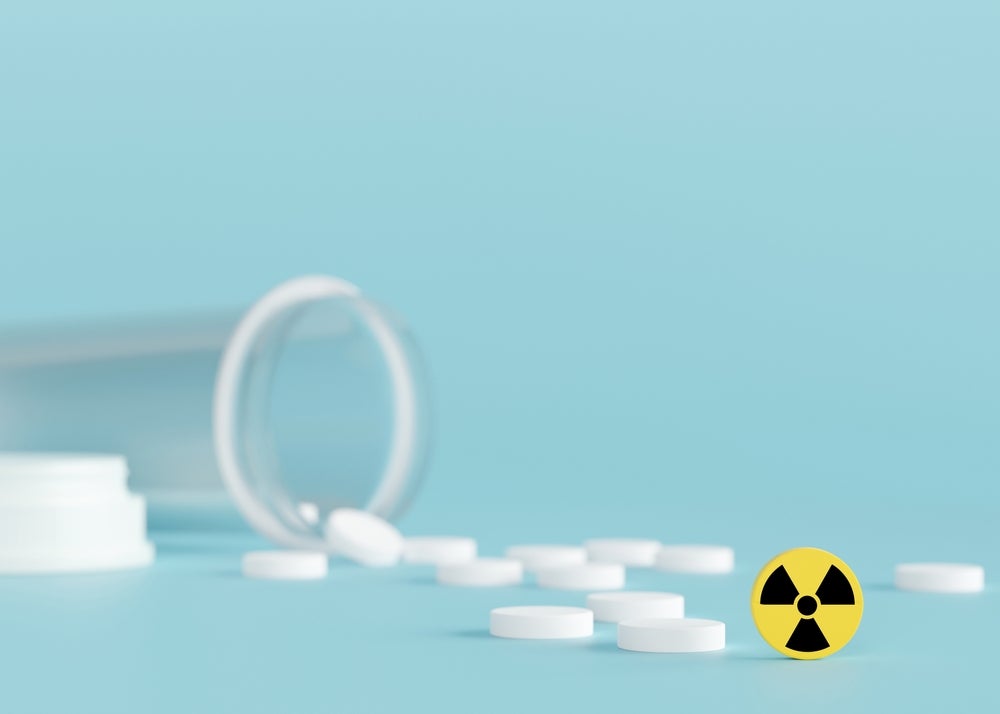Ariceum Therapeutics has initiated a Phase I trial for iodine-123 labelled ¹²³I-ATT001 in brain cancer patients, as the company eyes the ever-promising radiopharmaceutical sector.
The first-in-human trial, named CITADEL-123, will evaluate ¹²³I-ATT001 in patients with recurrent glioblastoma – the most common type of cancerous brain tumour in adults.
Ariceum’s targeted radionuclide therapy contains a radioactive iodine isotope and a ligand carrier that delivers it to cells. The drug blocks the enzyme poly ADP ribose polymerase (PARP), which is a protein used in the repair of damaged DNA.
This radioisotope emits low-energy Auger electrons (by the Auger effect), which deposit energy over short distances. This means the therapy can target tumour cells while leaving healthy tissue damage. An additional benefit of using Iodine-123 is that this isotope is more widely available than others, being produced in a cyclotron by proton irradiation of xenon.
The study will be conducted at University College London Hospitals (UCLH) in the UK and will assess the safety and efficacy of Ariceum’s asset. The company claimed it is the first to sponsor a clinical trial of Auger therapy for recurrent glioblastoma.
The study will first test multiple doses of the therapy in a dose escalation stage. A recommended dose will then be tested in a larger group of patients in combination with other therapies.
¹²³I-ATT001 will be administered via an Ommaya reservoir – a dome-shaped device placed under the scalp. Patients will receive a dose of the therapy once per week for four weeks in the dose escalation stage. Ariceum said that the regimen for the second part will be disclosed at a future date.
In a related development, Australian pharma company Telix raised nearly $400m this week to advance its brain cancer pipeline. TLX101, a 131-iodine-labelled therapy, is currently in Phase I (NCT05450744) and Phase II trials.
Ariceum’s most advanced asset is the Phase II candidate SS0110 – beta-emitting lutetium-177 radiolabelled satoreotide tetraxetan – the rights of which were acquired from Ipsen.
The radiopharmaceutical arena is becoming more crowded as the treatment modality yields increasing therapeutic promise. Eli Lilly has made no secret of its push into the space, acquiring radiopharmaceutical specialist POINT Biopharma in a $1.4bn deal in October 2023. The drugmaker then partnered with Radionetics Oncology on a $140m deal earlier this month, which included an exclusive option to buy the partner for $1bn.
Bristol Myers Squibb and Novartis have also conducted radiopharma acquisitions for $4.2bn and $1.75bn respectively in the past year.









